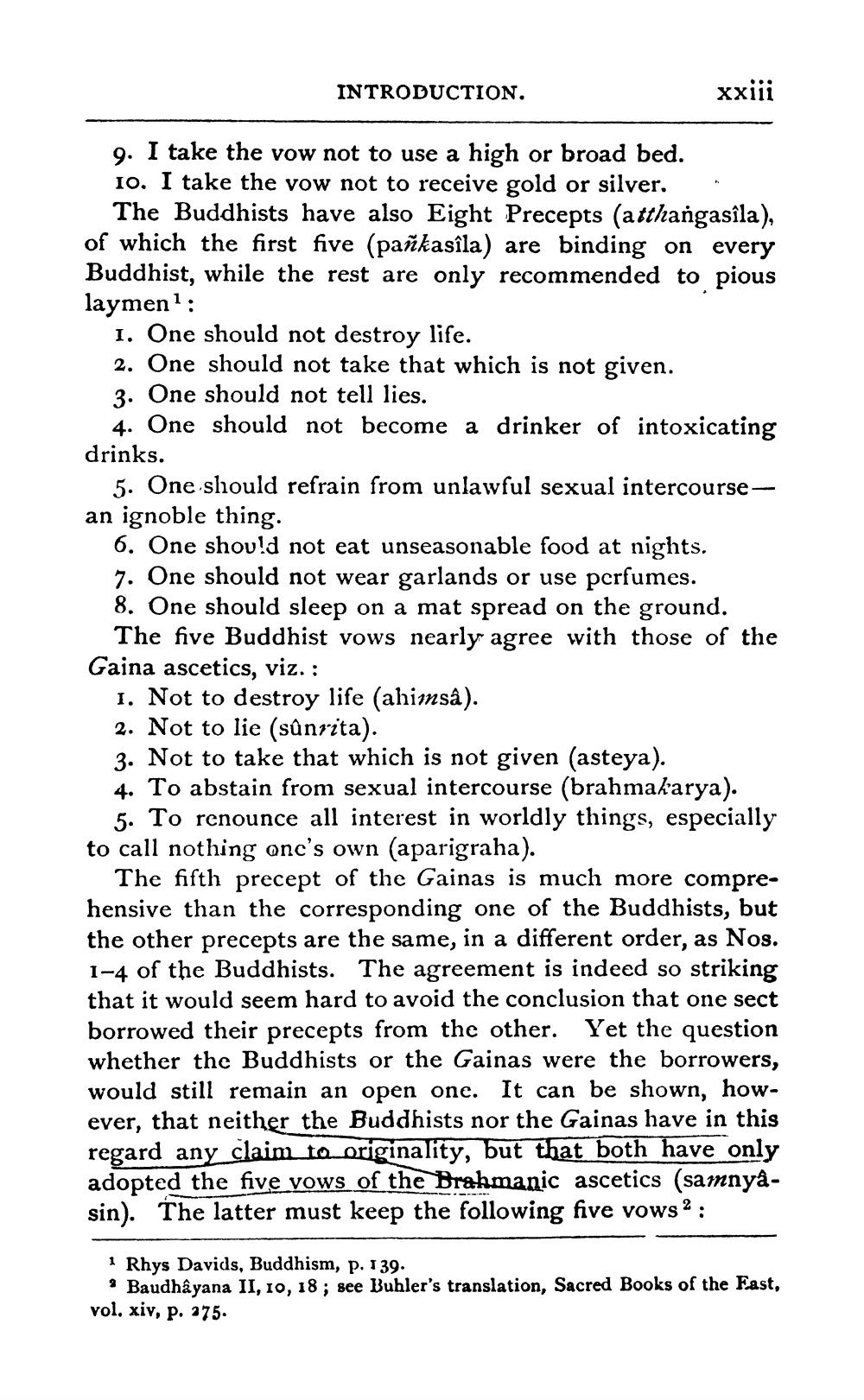________________
INTRODUCTION.
9. I take the vow not to use a high or broad bed. 10. I take the vow not to receive gold or silver. The Buddhists have also Eight Precepts (atthangasîla), of which the first five (pañkasîla) are binding on every Buddhist, while the rest are only recommended to pious laymen1:
1. One should not destroy life.
2. One should not take that which is not given.
xxiii
3. One should not tell lies.
4. One should not become a drinker of intoxicating drinks.
5. One should refrain from unlawful sexual intercoursean ignoble thing.
6. One should not eat unseasonable food at nights.
7. One should not wear garlands or use perfumes. 8. One should sleep on a mat spread on the ground. The five Buddhist vows nearly agree with those of the Gaina ascetics, viz. :
1. Not to destroy life (ahimsâ).
2. Not to lie (sûnrita).
3. Not to take that which is not given (asteya).
4. To abstain from sexual intercourse (brahmakarya).
5. To renounce all interest in worldly things, especially to call nothing onc's own (aparigraha).
The fifth precept of the Gainas is much more comprehensive than the corresponding one of the Buddhists, but the other precepts are the same, in a different order, as Nos. 1-4 of the Buddhists. The agreement is indeed so striking that it would seem hard to avoid the conclusion that one sect borrowed their precepts from the other. Yet the question whether the Buddhists or the Gainas were the borrowers, would still remain an open one. It can be shown, however, that neither the Buddhists nor the Gainas have in this regard any claim to originality, but that both have only adopted the five vows of the Brahmanic ascetics (samnyâsin). The latter must keep the following five vows2:
1 Rhys Davids, Buddhism, p. 139.
Baudhâyana II, 10, 18; see Buhler's translation, Sacred Books of the East, vol. xiv, p. 275.




